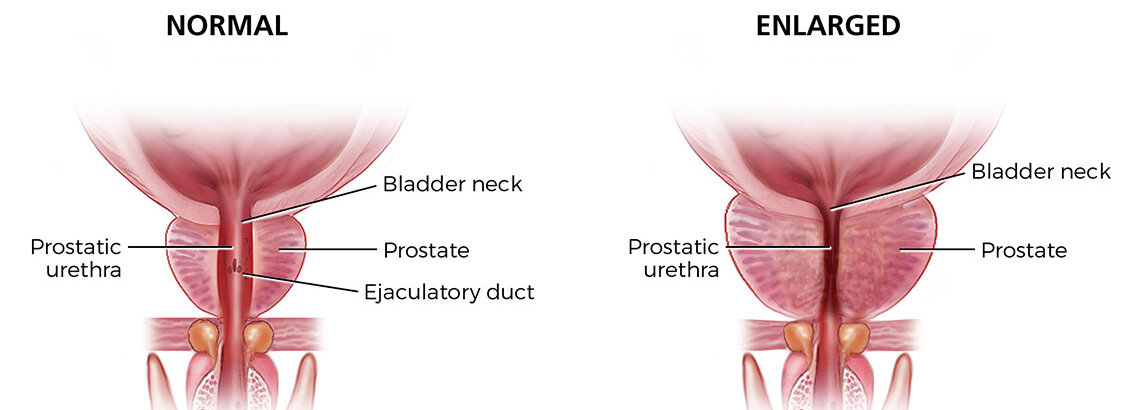Enlarged Prostate (Benign Prostatic Hyperplasia)
An enlarged prostate i is very common. The medical term for an enlarged prostate is benign prostatic enlargement (BPE) or benign prostatic hyperplasia (BPH). The prostate tends to enlarge with age and BPH can affect up to 90% of men with advancing age. Over 1/3 of men aged over 50 will have BPH-related symptoms.
If your sleep is being affected because you’re getting up during the night to use the restroom, feeling like your bladder isn’t empty, or having a tough time urinating, you may have symptoms of an enlarged prostate. These symptoms can be very frustrating to deal with.
The good news is that symptoms like these are completely treatable through lifestyle changes, medications or surgery if required.
Symptoms
Symptoms of BPH include:
Urinating frequently during the day
Nocturia (urinating frequently at night)
Waiting to begin urinating
Having a weak stream that starts and stops
Dribbling after finishing urinating
Poor emptying of the bladder
Urgency to get the to bathroom quickly
If you have got any of those symptoms, contact your doctor immediately for further tests. It's important to note, however, that multiple factors can cause these symptoms. If BPH is left untreated, it can lead to in kidney and/or bladder damage in some cases.
Diagnosis
Some diagnostic examinations and tests you may encounter include:
Digital rectal exam. The doctor will use a finger inserted into your rectum to look at your prostate size.
Urine testing. A urine sample are going to be tested to rule out any other causes.
Blood test. A blood test can be done to check your kidney and general health.
PSA test. A PSA test checks the possibility of the symptoms being from prostate cancer.
Enlarged Prostate Gland
Online Enquiry Form
Treatment
Many treatment options exist for BPH. The best treatment option for you depends on your age, the size of the prostate, the severity of symptoms and your general health.
Treatment options include:
Lifestyle changes. Lifestyle changes such as avoid drinking before going to bed, reduce caffeine intake and exercise frequently.
Medical treatment. Medications can relax the muscles in your prostate or shrink the prostate over time
Surgery. Surgery recommended if medications are not working, or you’re getting side effects from medication
Urolift
Transurethral resection of the prostate (TURP)
Aquablation
Rezum treatment
Laser therapy with Greenlight Laser Photovaporization or Holmium Laser Enucleation
Robotic Surgery to remove the inner lining of the prostate causing the blockage
Contact us
At Adelaide Urology Care, we are dedicated to giving you the care and support you need. Please do not hesitate to contact us to make an appointment and get back to peeing, sleeping, and feeling better!

